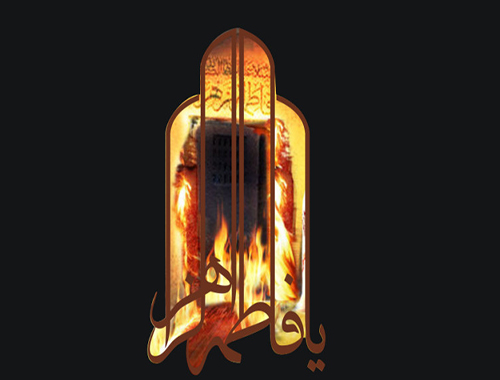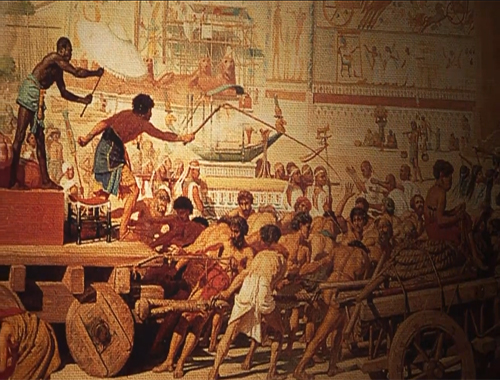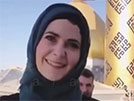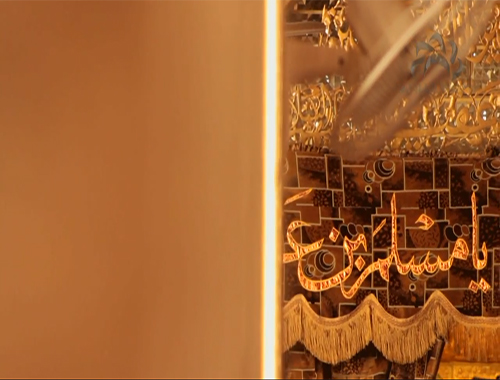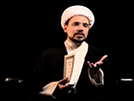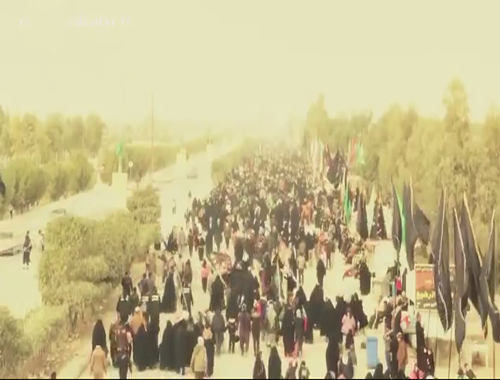The Book and the Author
- Details
- Hits: 8656
The Book and the Author
--------------------------------------------------------------------------------
Peace and blessings be upon the best of Allah’s creation, Muhammad (‘s), and upon his Purified Progeny (‘a), the ones through whom Allah Almighty perfected the code of ethics, and the curse be upon their foes and those who denied their virtues from the beginning of life and for eternity.
The book before you is regarded as one of the best that deal with applied ethics if you observe the following: its brevity and concentration. The best is what is the least said, while meaning the most, be it with regard to what is articulated or written. It is well known that too much talk about one topic, though useful, may be too much of a distraction to one seeking to benefit there from. This is why we notice how the Qur’an, which brings about the happiness of the beings if they follow it, is no larger than ordinary books nowadays.
The Qur’an is inclusive, moderate and does not concentrate on one particular field at the expense of another. Some people look upon ethics from the ritualistic angle, so they move about from one ritual to another, finishing the entire recitation time and over again, commemorating one Arba`in [1] after another... It is as though the worshipper tries to ascend to the angelic world in one night and through one ritual, forgetting that the path is what is advocated by the Qur’an: through one’s straightforwardness, struggle and serious effort to implement the Shari`ah to the letter, starting from individual matters, that is, acting upon what is obligatory and abandoning what is prohibitive, passing by what is highly commendable and what is held as contemptible, ending with the social issues, even if the latter means fighting the enemies of Allah Almighty on the field. We have pointed out in this book to portraits of such inclusion, something which has set this work apart from others.
Its realism: We see how the author inclines to display ethics as applied portraits to which one has to adhere while practicing them, rather than a collection of complicated ideas very close to being runes and riddles, as if their owner wants to prove through them his scholarly distinction and superiority over his peers. You may read the book once or twice without finding in it any one practical point applied on life’s field, one whereby a human alters his conduct, instead of being a purely scholarly luxury.
Book’s Adherence to the Way of Ahl al-Bayt (‘a):
The author hardly leaves one field without documenting it with a terse tradition transmitted from the guides of mankind, thus reflecting the depth of the author’s adherence to the necessity of comparing any major or minor movement seeking nearness to Allah Almighty with what is cited from them, peace be upon them. This is quite plentiful as recorded in the collections of citations from them through various narrations.
We think that anyone who seeks a path to Allah Almighty which avoids the system adopted by Ahl al-Bayt (peace be upon them) is doomed to either fall into the pitfalls of Satan or into self-deception. Either one of these suffices to lead to eternal perdition; so, what if both elements of perdition are present simultaneously?!
Should those who go to visit the sultan enter through any door other than the one which he ordered them to knock at? What is intended is not merely to enter the house-although entry is sought-arbitrarily, but it has to be done through the doors we are required to knock at. One who visits you by climbing your house’s rooftop is a burglar, even if he seeks to reach you and to put himself at your service.
Allah has enabled the author to succeed, sweetening his speech, thus making it appreciated by everyone who reads his book and who has been granted a good taste in this field. Whatever comes out of the heart enters into the heart. Sayyid Muhsin al-Amin, may Allah sanctify him, has said the following about him in his work titled A`yan al-Shi`a: ‘Shaikh Husain ibn Ali ibn Sadiq al-Bahrani is a virtuous scholar of ethics from among the later generations of the faqihs of Najaf and its scholars of hadith, biography and cognition. We have come across a dissertation by him dealing with ethics,’ a reference to this book. Then the author goes on to say, ‘It is a good dissertation. I do not recall its specifics. Some of those who have seen it have said that it is one of the best written in this art. Others have said that it is a dissertation about following the path of Ahl al-Bayt (‘a)’ (A`yan al-Shi`a, Vol. 6, p. 119).
The great researching critic, Shaikh Agha Buzurg al-Tahrani, has commented about his book saying the following in his own book Al-Thari`ah: ‘I found it at the library of our good master scholar, Sadr ad-Din al-Kazimi, who appreciated it greatly and used to say, ‘I never came across a speech better than his in the field of ethics except, perhaps, the wise statements of the beauty of the one who did tread the path, i.e. Sayyid Radiy ad-Din Ali ibn Tawus.’ He has concluded saying that its author is one of the later faqihs and scholars of al-Najaf who specialized in hadith and biographies.’ (Al-Thari`ah, Vol. 1, No. 372).
In his book titled Al-Kuna wal Alqab, al-Qummi, the traditionist, has said the following: ‘The great spiritual mentor, Shaikh Husain ibn Ali ibn Sadiq al-Bahrani, in his dissertation on ethics and on how to seek a path to Allah according to the way of Ahl al-Bayt..., etc.’ (Al-Kuna wal Alqab, Vol. 1, p. 329).
Although there is not much information about the author in biography books except what we have indicated above, the greatness of the writer manifests itself through his books. A book is a mirror reflecting its writer especially if we notice how his ideas find their way to the hearts thirsty for such type of writings. These writings have to be offered to our contemporary society which has been distracted by the life in this world in a way unmatched in history. We are not accustomed to seeing such portraits of infatuation displayed in a most unusual way throughout the history of mankind. Man is still the same in his limited abilities, frail before the forces of desire and anger. In his struggle, he faces a foe quite experienced in tempting since the creation of Adam, peace be upon him, while the portraits of temptation, i.e. the arrows of Eblis in all fields, keep getting more and more complete and widespread day after day. We do not know where this caravan, speeding towards what causes deterioration and annihilation, will finally settle.
Those who are concerned about the matters of the psyche must concentrate their efforts on finding a new method to resist these tumultuous waves stirred by the devils of the jinns and of mankind. No longer do the ancient preaching method and some ethical curricula, which are based on the style of general recommendations empty of divisions, and the idealistic requirements lacking practical means, suffice to curb the souls that are torn with confusion between what nature demands and the demands of the Shari`ah. We are in need of another style of writing in the language of our time, one addressing the new obstacles, in a gradual scientific style, and in clear practical steps, for training the soul is like training the bodies: it has its own principles and their results cannot be achieved except through first: the gradual process and, second, on the practical field.
In order to complete the discussion of what is useful, and in order to point out to the important points in the author’s book, we tried, as much as opportunity permitted us, to comment on such points in a way that makes the issue more clear and the idea more condensed, while making a reference to the sources of the ahadith which were not included in its first revised edition. We have to point out that we could not find the sources of some ahadith quoted in the book because the compiler copied their gist as he mentioned at the beginning of his book saying, ‘Do not try to transmit the specific utterances, for what is intended is a mere reference.’
May Allah Almighty, through His munificence and generosity, include us among those who receive the rewards of what the hand of this spiritual scholar recorded in his book which has quite often taken control of the hearts yearning to rid themselves of the captivity of materialism and desiring to ascend to the realm of the angels.
Finally, we would like to say this: It seems that fate did not permit the author to finish his book, as he stated at its end, hoping that someone else would succeed him in finishing it. We, therefore, plead to Allah, the most Exalted and the most Great, to consider what we have commented on his book to be the completion which he hoped for. May Allah Almighty grant him the fulfillment of his wishes in the world of the Hereafter.
Lord! Accept our effort; You are the all-Hearing, the all-Knowing. Lord! Make us endeavor to bring the hearts closer to You. Who is more worthy than You to reside in such a heart which You wished to be Your shrine, whereas we have made it a haven for everything that perishes except You?!
And the last of our supplication is:
‘All Praise belongs to Allah, the Lord of the Worlds.’
Habib al-Kazimi
Thul-Hijja 3, 1422
Notes:
[1]. For the meaning of Italicized Arabic terms, please refer to the Glossary. __ Tr.


